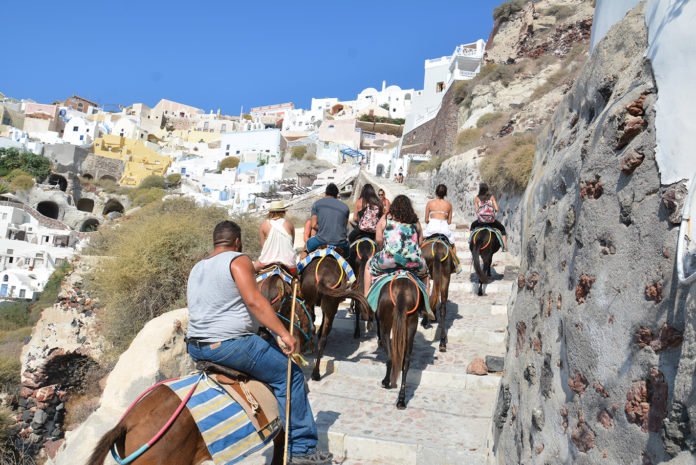These are just some of the current travel advisories taken from DFAT (Department of Foreign Affairs and Trade).
Exercise normal safety precautions in Greece. Use common sense. Look out for suspicious behaviour. Monitor the news and other sources for changes to local travel conditions.
Forest fires often occur during June to September. They are highly dangerous and unpredictable. See Natural disasters
A number of West Nile virus (WNV) cases have been reported throughout Greece. Protect yourself against mosquito bites. See Health
Avoid protests and demonstrations, as they may turn violent. The likelihood of civil unrest may increase during days of national or historic significance, such as 1 May (Labour Day), 17 November (anniversary of the 1973 student riots) and 6 December (anniversary of the 2008 riots). See Safety and security
Soon DFAT will have to add another advisory to this list. Fat tourists weighing more than 100kg are now banned on riding a donkey in Santorini, Greece.
According to Greece’s Ministry of Rural Development and Food, their aim is to protect Santorini’s donkeys.
Animal rights activists have been campaigning for the welfares of the island’s donkeys who are suffering spinal injuries, open sores and stress as a result of carrying tourists, made worse with obesity on the rise.
The animals are commonly used for long rides up the steep coastal cliff to hilly Santorini’s capital of Fira. The walk takes about thirty minutes or two minutes by cable car. However, tourists who want the ‘real Greek’ experience can ride on a donkey.
Besides, donkey are made to work long hours, seven days a week during the hot and very busy peak tourism season, without shelter, water and rest and lashed if they were too slow, activists claimed.
According to the new laws, donkeys on rides in Santorini should not carry loads heavier than 100kg, or one fifth of their weight.





